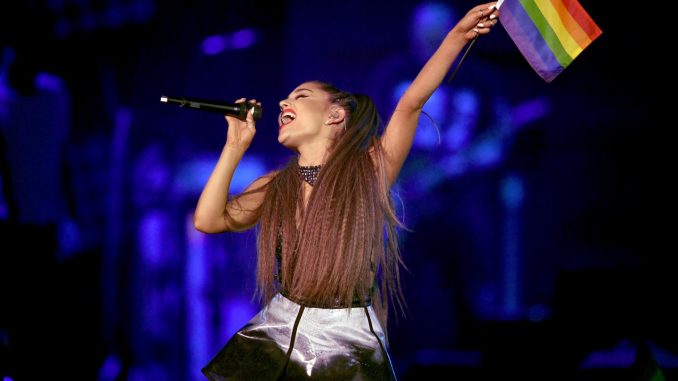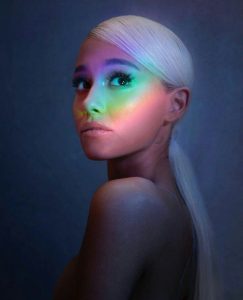
Katie Hébert, Staff Writer |
Last week, pop sensation and Grammy-winning star, Ariana Grande, dropped a new song with her best friend, Victoria Monet. A single line of the piece sparked widespread controversy as to Grande’s sexuality. Grande sings, “I like women and men (Yeah)” in the new song, “Monopoly.”
Monet recently came out as bisexual in November, sharing the relief that it was with a tweet: “After coming out, this thanksgiving coulda went waaaay left!! But she love meeeee how I am and I’m so happy.”
After the song was released, fans started speculating about Grande’s sexuality. Twitter user, @likeitsyours tweeted: “Ariana ain’t gotta label herself, but she said what she said.” Grande later responded to the tweet, saying, “i haven’t before and still don’t feel the need to now which is okay.”

Fans are supporting Grande no matter what. The question at hand is, however, whether or not defining Grande’s sexuality is even something anyone needs to do. David Oliver raised the point about the LGBTQ+ community that “Grande is (objectively!) correct: We don’t need to put LGBTQ labels on celebrities or any people, for that matter who don’t feel the need to label themselves. And even if Grande never addressed the lyric, it still isn’t information we need to know to go about our lives. But why do we try and make it our business?” continuing with, “It’s damaging to the LGBTQ community at large. It paints sexual orientation and gender identity as something that’s right or wrong; assumes people have an obligation to share this information with their fans; and sends a message to queer people everywhere that their identity is something to gossip about and not celebrate.”
LGBTQ+ folks are constantly being put under a microscope for their gender and sexuality, as many people start to criticize the concept of coming out in a heteronormative society. However, many, including LGBTQ+ people, aren’t so happy with that idea and Grande’s response. Tadhg Larabee from the Harvard Crimson wrote, “Grande’s music video for “‘break up with your girlfriend, i’m bored,’” in which the singer flirts with a man before kissing his girlfriend, gave off serious and uncomfortable Katy Perry “‘I Kissed a Girl’” vibes. And Grande’s choice to headline Manchester Pride as a cis and (apparently) straight artist provoked understandable backlash.” People are viewing this lyric, attached to Grande’s ambiguous tweet response, as something that many other celebrities do: using queerness as a selling point.
While the refusal to not put a label denies the community of more representation, especially from a beloved star like Grande, the pressure to come out is heightened to a new degree when seen in the public eye. Forcing someone out is harmful and damaging, regardless of whether their name is in the headlines or not. As of right now, let’s keep bopping to Grande’s songs and provide her the space and comfort to share herself as she wants, as we should with all marginalized groups.
Leave a Reply